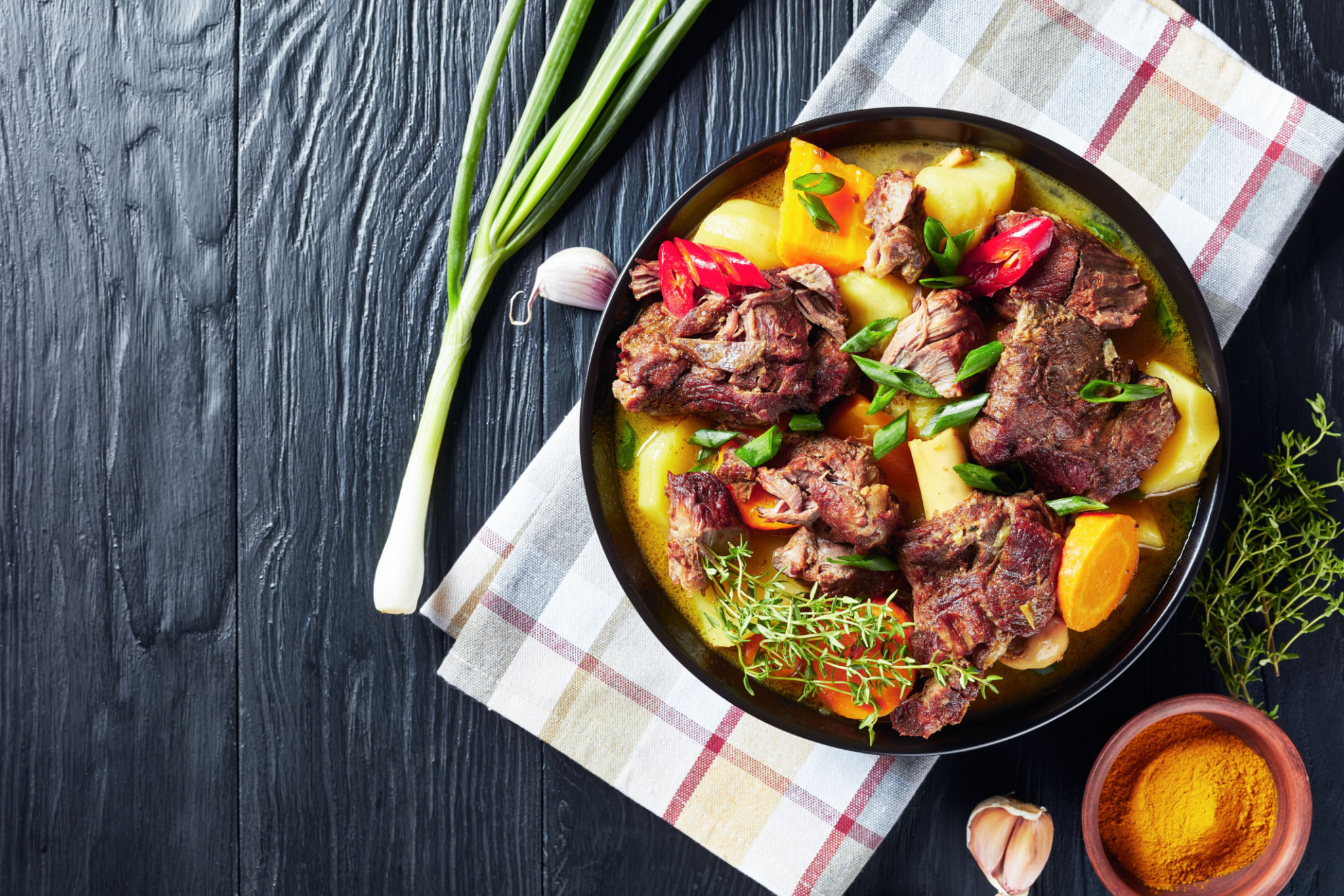Exploring Bold Nigerian Flavors in Global Classics
Introduction to Nigerian Flavors
Nigeria, renowned for its vibrant culture and diverse culinary traditions, offers a plethora of bold flavors waiting to be explored. Integrating these unique tastes into global classics can create an extraordinary gastronomic experience. Nigerian cuisine is rich in spices and diverse ingredients, providing a perfect opportunity for food enthusiasts to experiment and innovate.
From the fiery heat of Scotch bonnet peppers to the earthy richness of palm oil, Nigerian flavors are distinctive and robust. These ingredients add depth and complexity to dishes, making them a fantastic addition to classic recipes from around the world. Let's explore how these bold flavors can transform global classics.

The Spice Symphony
One of the most notable aspects of Nigerian cuisine is its use of spices. Nigerian dishes often incorporate a blend of spices such as ginger, garlic, thyme, and nutmeg. These spices can be used to elevate the flavor profile of international dishes like pasta, stir-fries, or even grilled meats.
For instance, adding a touch of ground ginger and nutmeg to a traditional Italian Bolognese sauce can introduce an exciting twist. The warmth of these spices complements the richness of the tomato-based sauce, offering a new dimension of taste that captivates the palate.

Fusion of Flavors in Soups and Stews
Nigerian soups and stews are hearty and flavorful, often featuring ingredients like okra, egusi seeds, and leafy greens. These components can be incorporated into global soup or stew recipes, enhancing their nutritional value and flavor complexity.
Consider adding okra to a classic French Ratatouille. This infusion not only thickens the dish naturally but also adds a subtle texture that complements the traditional vegetables used. Similarly, egusi seeds can be blended into creamy soups for a nutty undertone that surprises and delights.

The Art of Nigerian-Inspired Marinades
Marinades are an excellent way to infuse meats or vegetables with flavor before cooking. Nigerian-inspired marinades featuring ingredients like suya spice—a blend of ground peanuts, ginger, paprika, and cayenne—can transform ordinary grilled dishes into something extraordinary.
Imagine marinating chicken or tofu with suya spice before grilling. The result is a smoky, spicy flavor that tantalizes the taste buds, offering a delightful contrast to traditional barbecue seasonings. This method not only highlights the boldness of Nigerian flavors but also showcases their versatility.
Pairing with Global Classics
Nigerian flavors pair exceptionally well with a variety of global classics. For example, jollof rice—a beloved West African dish—can be served alongside grilled seafood or roasted vegetables for an international feast. The rich, spicy tomato base of jollof rice complements these dishes beautifully.
Moreover, the combination of Nigerian flavors with global classics is not limited to savory dishes. The sweetness of Nigerian honey and exotic fruits such as mangoes and pineapples can enhance desserts like cheesecakes or tarts, offering a sweet finale to any meal.

Conclusion: Embracing Culinary Innovation
Exploring bold Nigerian flavors in global classics is an exciting culinary journey that encourages creativity and innovation. By incorporating these unique tastes into traditional recipes, chefs and home cooks alike can create dishes that are both familiar and refreshingly new.
Whether you're an adventurous eater or simply looking to spice up your cooking routine, embracing Nigerian flavors promises a rewarding experience. So why not take a leap into this flavorful world and discover the magic that these bold ingredients bring to your table?